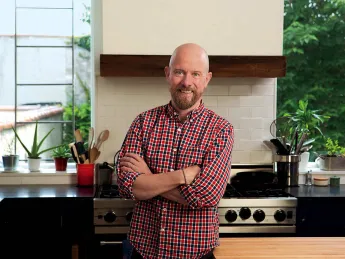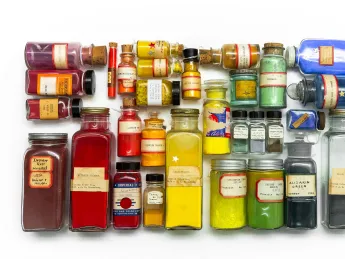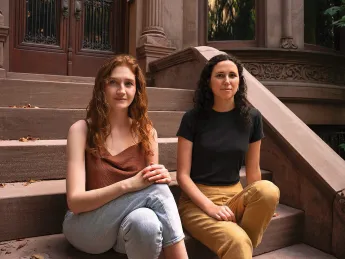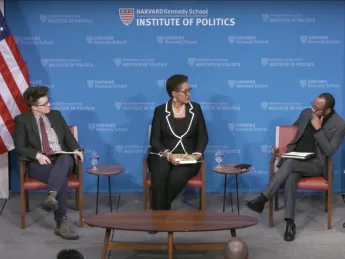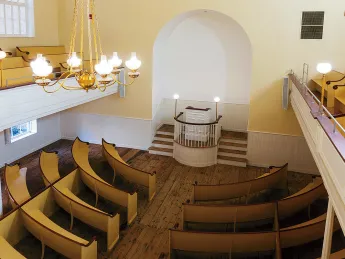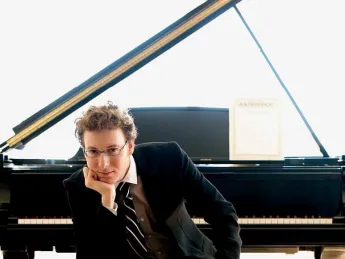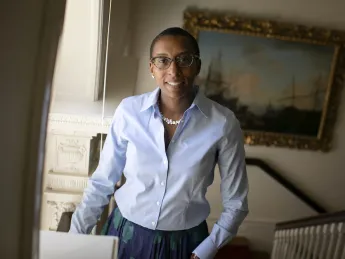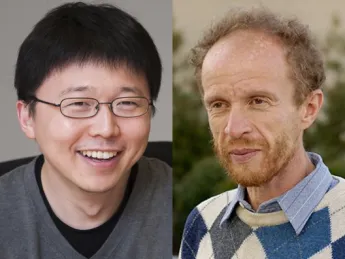Search
Improvised Cuisine
It sounds odd —quite odd, actually—for a sandwich. Two slices of sourdough bread emerge from a toaster, then one gets slathered with peanut butter. Nothing surprising so far. But then a layer of pickle chips covers the nut butter, followed by a drizzle of …
Issue: September-October 2021
Brevia
Animal-Rights Threats Opposition to the use of animals in biomedical research (the subject of this magazine's January-February 1999 cover story) took a more threatening turn in October. A group calling itself the "Justice Department"--which has been …
No Surprises
The Harvard University Financial Report for the fiscal year ended last June 30 appears to fulfill administrators’ hopes: it conveys essentially no surprises. In this, the mid-October report contrasts sharply with the fiscal 2009 version, which disclosed …
Issue: January-February 2011
The Black Hole at the Center of the Galaxy
More than 300 scientists worldwide, working collaboratively, have created an extraordinary image of the black hole at the center of the Milky Way Galaxy. Sagittarius A*, a supermassive black hole, is just 25,000 light-years (more than 147 trillion miles) …
Up Close (Virtually) with the Forbes Pigment Collection
The Harvard Art Museums’ world-famous Forbes Pigment Collection, which holds more than 2,700 pigments that have been used in artworks all over the world, is usually inaccessible to visitors. It sits behind glass walls on the fourth floor of the museums’ …
Campus Conversations on Speech
At Harvard , there are research areas that can’t be investigated, subjects that can’t be broached in public, and ideas that can’t be discussed in a classroom. So says a group of more than 120 Harvard faculty members, who have formed a Council on Academic …
Issue: September-October 2023
The New Little Magazines
Seven hundred people were surrounded by taxidermied peacocks and monkeys in the lounge of New York’s Jane Hotel. That evening this spring, they gathered beneath the erratic light of a disco ball. And they were there to talk about literature. When Kiara …
Issue: September-October 2023
How to Protest Effectively
“Almost everything that we have,” said legal scholar and civil rights attorney Gloria Browne-Marshall during a Tuesday evening event at the Harvard Kennedy School (HKS), “somebody had to protest for us to have it.” She gestured toward the multi-racial …
One Shot at Hollywood
“A wild ride.” That’s how Alex Molina A.R.T. ’15 describes DASH , the film he recently helped create, currently showing online through April 17 on Cinequest , an independent film festival. A feverish and fast-paced thriller, DASH follows a rideshare …
The Good Fight
In 1831 , the abolitionist and women’s rights advocate Maria W. Stewart lived within Boston’s small but vibrant Beacon Hill community of free blacks who had come to view the city as something of a haven. American abolitionism was gaining momentum, and …
Issue: November-December 2023
Online-Education Updates
Four years after Harvard and MIT launched edX, their online-course venture, in May 2012, MIT scholars have published “Online Education: A Catalyst for Higher Education Reforms,” a review of the field. Its lead authors—Karen Willcox, professor of …
Issue: November-December 2016
Supporting Cast
Nicholas Britell ’03 fell in love with music through the movies. Chariots of Fire made him want to study classical piano, and as a 12-year-old, he took obsessive notes on James Horner’s score for the 1992 hacker film Sneakers. If, like Horner’s shimmer of …
Issue: September-October 2016
Claudine Gay Named Dean of the Faculty of Arts and Sciences
President Lawrence S. Bacow announced this morning that Claudine Gay—Cowett professor of government and of African and African American studies, and dean of social science within the Faculty of Arts and Sciences (FAS)—will become dean of FAS August 15. …
Forecourt Phenoms
In the world of college squash, Harvard was once a perennial national champion. The Crimson have bagged 30 such titles, far more than any other college, and reeled off seven consecutive national nine-man championships as recently as 1991 though 1997. But …
Issue: January-February 2007
Broad Institute Researchers Find New Method to Edit RNA
A team of scientists led by Feng Zhang ’04 of the Broad Institute of Harvard and MIT announced Thursday the discovery of a bacterial protein, called C2c2, capable of editing the genetic information contained in RNA. The research, to be published in the …
